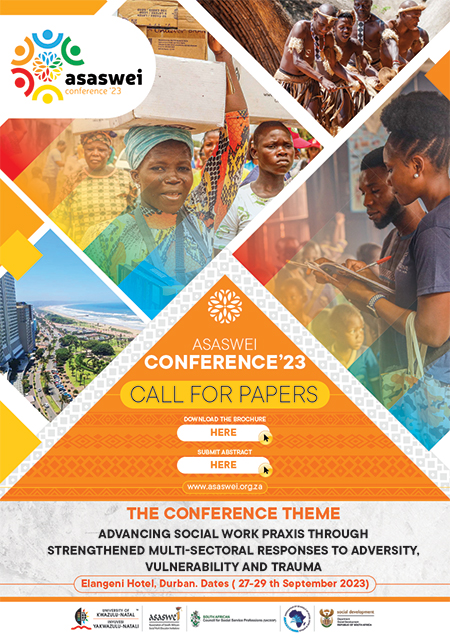The View page displays a submission's general information and data. Watch video
Submission information
Submission Number: 6
Submission ID: 6
Submission UUID: 9a3d95ee-c45d-4f4b-afed-571b10ffc156
Submission URI: /2023/abstracts
Created: Sat, 04/22/2023 - 14:46
Completed: Sat, 04/22/2023 - 15:26
Changed: Thu, 08/17/2023 - 09:48
Remote IP address: 209.203.23.219
Submitted by: Anonymous
Language: English
Is draft: No
Current page: Complete
Webform: Abstract
Presenters
Dr.
Sobantu
Mziwandile
University of Johannesburg
Mzwandile Sobantu is a Senior Lecturer in the Department of Social Work and Community Development at the University of Johannesburg. He holds a PhD in Social Work, focusing on the intersection of housing and social development obtained from the University of Johannesburg. Among other roles, he teaches postgraduate and undergraduate modules, and very passionate about postgraduate supervision and academic writing. In addition, he coordinates the Masters in Community Development (MACD) programme. Since joining academia, he has published several journal articles, book chapters and presented his research in different fora in the continent and abroad.
No
Abstract
Rethinking Adequate Housing and Inclusive Neighbourhoods as a Strategy to Mitigate Vulnerabilities Against Older Persons
THEME 1: Promoting stakeholder partnerships that protect, support and enhance resilience during adverse events and trauma
SUB 1.2 The protection of physical and psychological health and wellbeing of children, people with disabilities, and older people through fostering safe, sustainable, and inclusive living spaces
Oral Presentation
Particularly in South Africa, vulnerable populations contend with a nexus of interrelated vulnerabilities. As they age, senior citizens require optimum social care in safe and secure housing and neighbourhoods. UN SDG 11 stresses that as part of social policy, adequate housing is the bedrock for inclusive development to mitigate a myriad of physical and psychosocial risks particularly for vulnerable populations. Employing a human rights perspective, this qualitative study explored the intersection of housing and subjective wellbeing for older persons in a low-income community in Johannesburg. Data were collected from nine participants utilising semi-structured interviews. After transcription, it was analysed through content analysis. The study found out that the quality of housing and neighbourhood environment influenced their perceptions of vulnerability. Risks to sexual abuse was determined by overcrowding, for example. In conclusion, housing is not only just brick and mortar but also undergirds key social and economic relations that mitigate vulnerabilities.
Reviewer ONE Feedback
Dr
Peggie
Chiwara
Yes
Empirical Research
Accepted
Reviewer TWO Feedback
Prof
Veonna
Goliath
Yes
Empirical Research
Accepted

